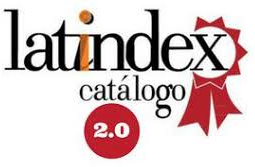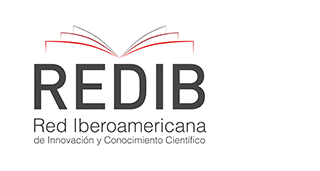C´ómo mejorar la gestión del desempeño. / How to improve performance management.
DOI:
https://doi.org/10.37767/2468-9785(2019)004Palabras clave:
Gestión por objetivos, OKR, Compensación variable, Feedback, Feedforward, Management by objetives, Variable compensationResumen
En el marco del capital humano, la gestión del desempeño emergió como propuesta innovadora. Está probado que proporciona valor, pero se encuentra muy cuestionada. Este texto revisa la bibliografía con foco en las propuestas para su mejora, presentando los debates que la componen y nuevas herramientas para su implementación.
ABSTRACT:
In the field of human capital, performance management surfaced as an innovative proposal. It has proven to add value however, it’s deeply questioned. This text reviews its literature, focusing on the ideas for its improvement, presenting the debates that make it up and new tools for its implementation.
Referencias
BERSIN, J. (2016a) “HR technology disruptions for 2017: Nine trends reinventing the HR software market”, Deloitte Development LLC.
BERSIN, J. (2017) “HR technology disruptions for 2018: productivity, design, and intelligence reign”, Deloitte Development LLC.
BERSIN, J. (2016b) “Predictions for 2016: A bold new world of talent, learning, leadership, and HR technology ahead”, Deloitte Development LLC.
BERSIN, J. (2016c) “Predictions for 2017: Everything is becoming digital”, Deloitte Development LLC.
BOCK, L. (2015) La nueva fórmula del trabajo, Buenos Aires, Argentina: Conecta.
BOUDREAU, J. W. y JESUTHASAN, R. (2011) Transformative HR: How great companies use evidence-based change for sustainable advantage, San Francisco: Jossey-Bass.
BUCKINGHAM, M. (2015) Standout 2.0: Assess your strengths. Find your edge. Win at work., Harvard Business Review Press, Boston.
CHANDLER, T. M. (2016) How performance management is killing performance – and what to do about it, Oakland CA: Berrett- Loehler.
COLLINS, J. C., y PORRAS, J. I. (1996) Empresas que perduran, Barcelona, España: Ediciones Paidós.
CONNORS, R. y SMITH, T. (2016) Cambie la cultura, cambie el juego, Buenos Aires, Argentina: Ediciones Paidós.
CRAVINO, L. M. (2015) “Evolución histórica del concepto de gestión del desempeño”, Revista de Ciencias Empresariales, Córdoba, 1, 7-16.
CRAVINO, L. M. (2018) Gestión del desempeño, Berlín: Editorial Académica Española.
CRAVINO, L. M. (2017) Metáforas del des- empeño, Buenos Aires, Argentina: Temas.
DOERR, J. (2019) Mide lo que importa, Buenos Aires, Argentina: Conecta.
ELLIOTT, P., Architecting a Management System, [Mensaje de blog], publicado en 2016, recuperado el 19 de julio de 2019 de http://exemplaryperformance.com/archi- tecting-high-performance-management- systems/.
FITZ-ENZ J. y MATTOX J.R (2014) Predictive analytics for human resources, New Jersey: Wiley.
GUINN, K. (1987) Performance Management: not just an annual appraisal, SantaBarbara, California: Training.
HANCOCK, B., & SCHANINGER, B., Why we all need performance ratings on a regular basis, [Mensaje de blog], publicado en 2019, recuperado el 6 de mayo de 2019 de https:// www.mckinsey.com/business-functions/ organization/our-insights/the-organization- blog/why-we-all-need-performance-ra- tings-on-a-regular-basis.
KOHN, A., (1993) Punished by rewards, Boston NY: Houghton Mifflin.
LALOUX, F. (2017) Reinventar las organizaciones, Barcelona, España: Arpa y Alfil Ediciones S. L.
LAWLER, E. (2018) Talent, San Francisco: Jossey-Bass.
LEDFORD, G. E., y SCHNEIDER, B. (2018) “Performance feedback culture drives business impact”, Institute for Corporate Pro- ductivity (i4cp) & Center for Effective Organizations (CEO), recuperado de https://ceo. usc.edu/files/2018/07/Performance-Fee- dback-Culture-Drives-Business-Performan- ce-i4cp-CEO-002.pdf.
LESCHKE-KAHLE, A., Stop Over-Engineering and Start Connecting, [Mensaje de blog], publicado en 2019, recuperado el 11 de julio de 2019 de https://www.td.org/ insights/stop-over-engineering-and-start- connecting.
MALONE, P. y SUTCH, Z. (2019) “The fear of feedback”. Td talent development, 73 (2), 30-35.
PARENT et al. (2015) “Global human capi- tal trends 2015: Leading in the new world of work”, Deloitte Development LLC.
PINK, D. H. (2009) Drive: the surprising truth about what motivates, New York: Penguin Group.
SCHRAGE, M., KIRON, D., y BRESCHI, R. (2019) “Performance Management’s digital shift”, MIT Sloan Management Review y McKinsey & Company, Recuperado de https:// sloanreview.mit.edu/performance.
SCHWANTES, M. (2019) How Do Employees Truly Feel About Their Bosses? Research Reveals What Nobody Wants to Admit, Inc. Magazine, Recuperado de https:// www.inc.com/marcel-schwantes/bosses- stop-doing-just-1-thing-research-says-youll- drastically-improve-your-management skills.html.
SULL, D., y SULL, C. (2018) With Goals, FAST Beats SMART, [Mensaje de blog], publicado en 2018, recuperado el 1 de marzo de 2019 de https://sloanreview.mit.edu/article/ with-goals-fast-beats-smart/.
SYNERGITA PMS. (2019) 3 Simple steps for Refreshing your Employee Performance Management, [Mensaje de blog], publicado el 5 de marzo de 2019, recuperado el 19 de julio de 2019 de https://yourstory.com/ mystory/3-simple-steps-for-refreshing- your-employee-perfor-x9bljm048c.
UPCHURCH, Z., y EFFRON, M. (2018) The talent management, Recuperado de https:// www.talentstrategygroup.com/publications/talent-management-revolution.
VOLINI et al. (2019) “Leading the social enterprise: reinvent with a human focus”, De- loitte Development LLC.
WODTKE, C. (2016) Introduction to OKRs, Sebastopol, California: O’ Reilly Media, Inc.
WORLDATWORK y SIBSON CONSULTING. (2010) “2010 Study on the state of performance management”, The Segal Group Inc.
ZAK, P. (2017) Trust Factor, New York: AMACOM.
ZENGER, J. H. y FOLKMAN J. (2010) El líder extraordinario: transformando buenos directivos en líderes extraordinarios, Col. Del Valle, México: Alfaomega Grupo Editor.










